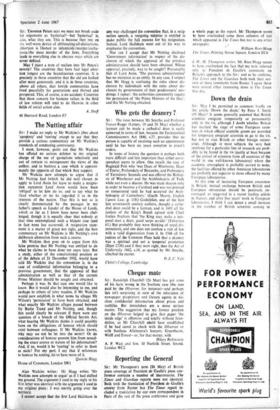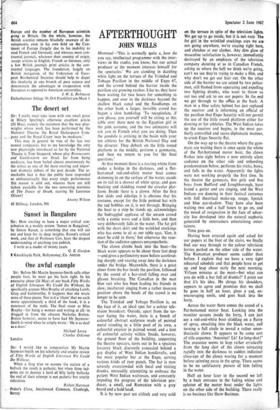Down the drain
Sir: May I be permitted to comment briefly on the article 'Down the drain,' by Peter J. Smith (19 May)? It seems generally assumed that British scientists emigrate temporarily or permanently only to the us, although I doubt whether Britain has reached the stage of some European coun- tries in which official scientific grants are provided for temporary emigrant scientists to go to the tts, but not to visit British or other foreign univer- sities. Although in most subjects the very best institutes for a particular line of research are prob- ably to be found in the us (partly at least because of the arrival of scientists from all countries of the world in one well-known laboratory) where the academic atmosphere is probably second to none, the facilities offered by other American laboratories are probably not superior to those offered by many European laboratories.
At this time of increasing European awareness in Britain, mutual exchange between British and European universities should be positively en- couraged. as suggested in a recent leading article in Nature; and after five years' work in European laboratories, I think I can detect a small increase in the number of British scientists coming to Europe and the number of European scientists going to Britain. On the whole, however, the British scientist remains blissfully unaware of de- velopments, even in his own field on the Con- tinent of Europe (largely due to his inability to read- French and German); and whereas most con- tinental journals, whatever their country of origin, accept articles in English, French or German, only a few British journals print articles in the con- tinental languages. The foundation, largely on British instigation, of the Federation of Euro- pean Biochemical Societies should help to dispel this insularity in one branch of pure science and demonstrate the advantages in cooperation with European as opposed to American universities.



































 Previous page
Previous page